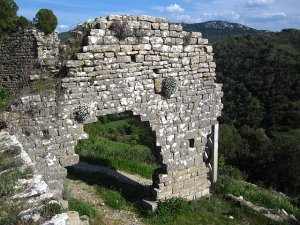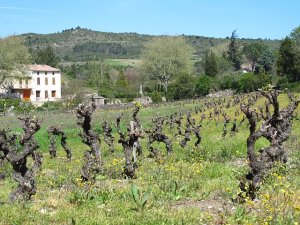 The Chateau by William Maxwell
The Chateau by William Maxwell
My rating: 5 of 5 stars
This is a rare gem of a book. It is so perfect in its depiction of traveling and falling in love with another country that, not only would I not change a word, I found section after section I wanted to absorb into my skin. Although written sixty years ago and set just after World War II, the interactions and reactions of a young American couple with the French and in France remain relevant, painful, hilarious, and true.
Its peaceful pace belies the profound transformation of its principal characters, Harold and Barbara, and of the painful recent history from which the French were so eager to shake loose in the fragile years of the late 1940’s. It is counter to French nature to turn away from history and move on with assertive hope; Barbara and Harold arrive at the border just as France accepts that breaking the habit of reflection and debate and marching in concert with their European neighbors- including Germany- is the only way out of the post-war depression.
Whether or not it was the writer's intention, Maxwell’s characters personify specific national characteristics or conditions that were present in France during this tender and uncertain time.
Mme Viénot is the face of dignity. She endeavors to preserve the gentility of the rapidly disappearing class of landed gentry. Hers is the eponymous château, which suffers the indignities of no hot water, no heat, and a larder limited by ration coupons. She is wily, a survivor, one foot trailing in the France’s past, the rest of her thrust forward, ready to grasp what she can to keep her home and legacy intact.
Eugène Boisgaillard encapsulates a nation emasculated by war, and its co-conspirators helplessness, guilt, and frustration. He runs hot and cold- a character you don’t trust and but somehow you come to understand. He is surely suffering some sort of post-traumatic stress disorder, a condition not spoken of in a nation that had lost so many of its young men to war. He resents the vitality and hope of the American naïfs as he comes to terms with the loss of his gracious pre-war lifestyle.
Mme Straus-Muguet is a reminder that all is not as good as it seems in the land of your dreams. Pulling back the curtain of Emerald City to see an insignificant blunderbuss at the controls is a keen disappointment. But once you accept the flaws and the ordinariness of it all, you also begin to feel more at home.
Her awkward social status is also a painful but unspoken reminder that, although united during the war by hunger, fear, resistance, or mere survival, the different social classes would sort themselves out in peacetime. Peace means never having to say “I’m sorry,” to someone beneath your standing.
Sabine and Alix are the face of the new France: young, strong, independent women. Sabine is blazing her career path without the help of her connected family or a paramour; Alix is a busy mother in a passionate but difficult marriage with the mercurial Eugène. These women realize there is no time to stop and reflect on all that was lost in two generations of war; their lives are rich and full, the demands on their intelligence and heart too great to tarry.
It often feels that Harold and Barbara are more conduits than characters, particularly the winsome and vague Barbara. Harold works so hard to understand and to be understood, to fit in, get along, adapt; he wants desperately to be French, but understands that he is the quintessential American. The passages showing Harold falling helplessly in love with France, encountering the inexplicable and the maddening, and finally, saying goodbye to Paris are heart-wrenching to any one who has known and loved that beautiful, proud, contrary, gracious country.
The Château is a love letter to France, and an homage to the baffling, intoxicating experience of traveling abroad. It is also an astute portrayal of post World War II Europe, of a country that was on the losing side of the victorious.

